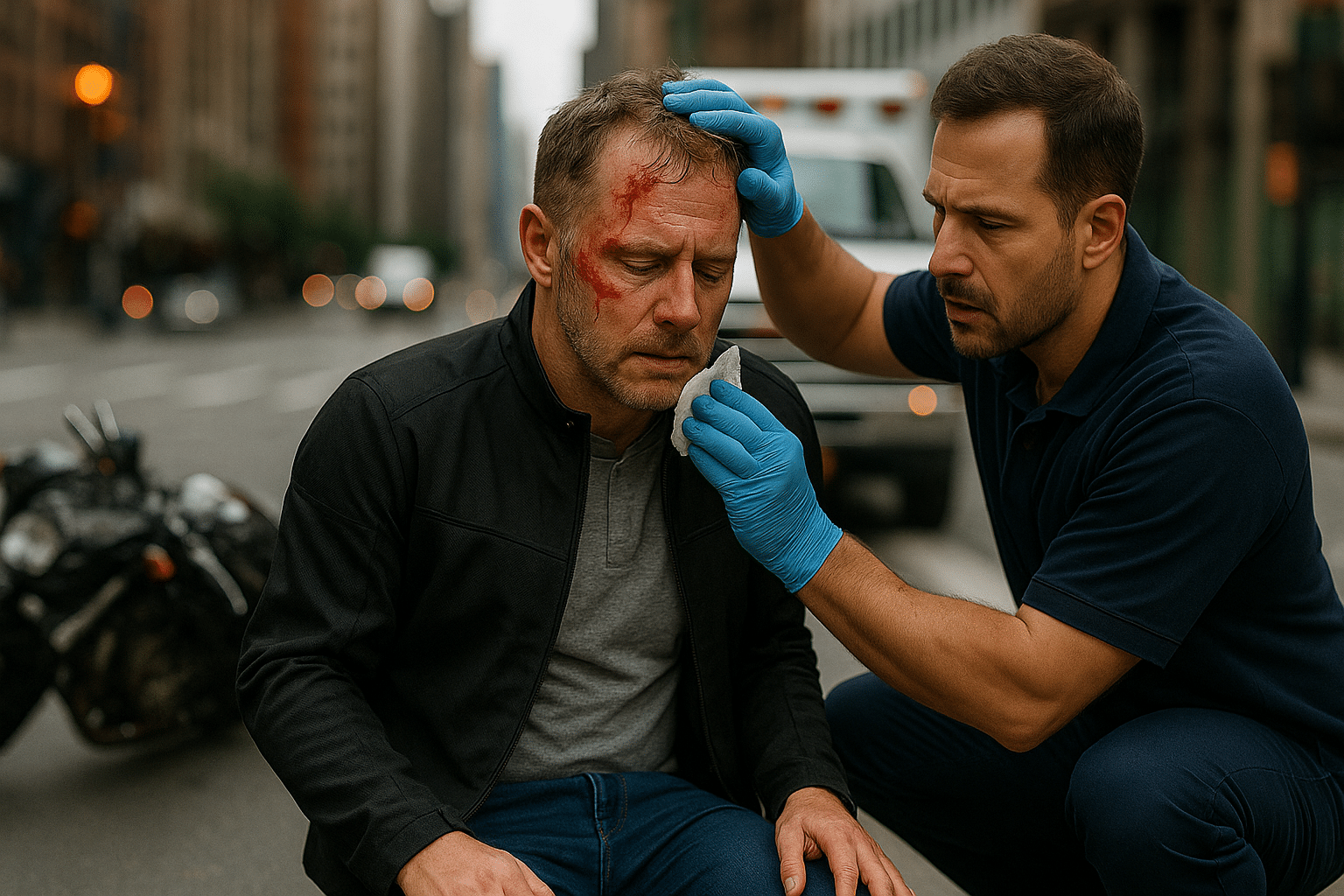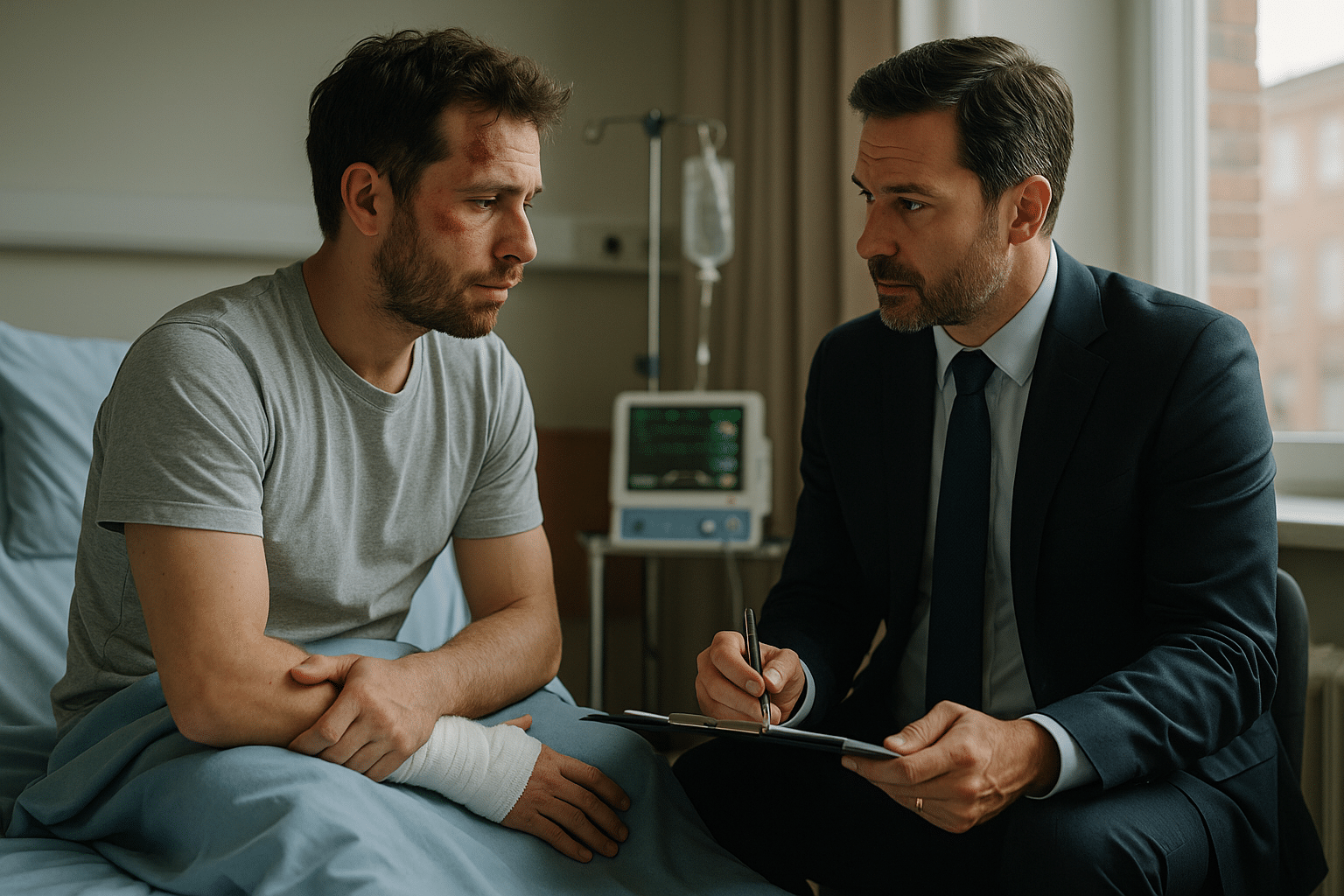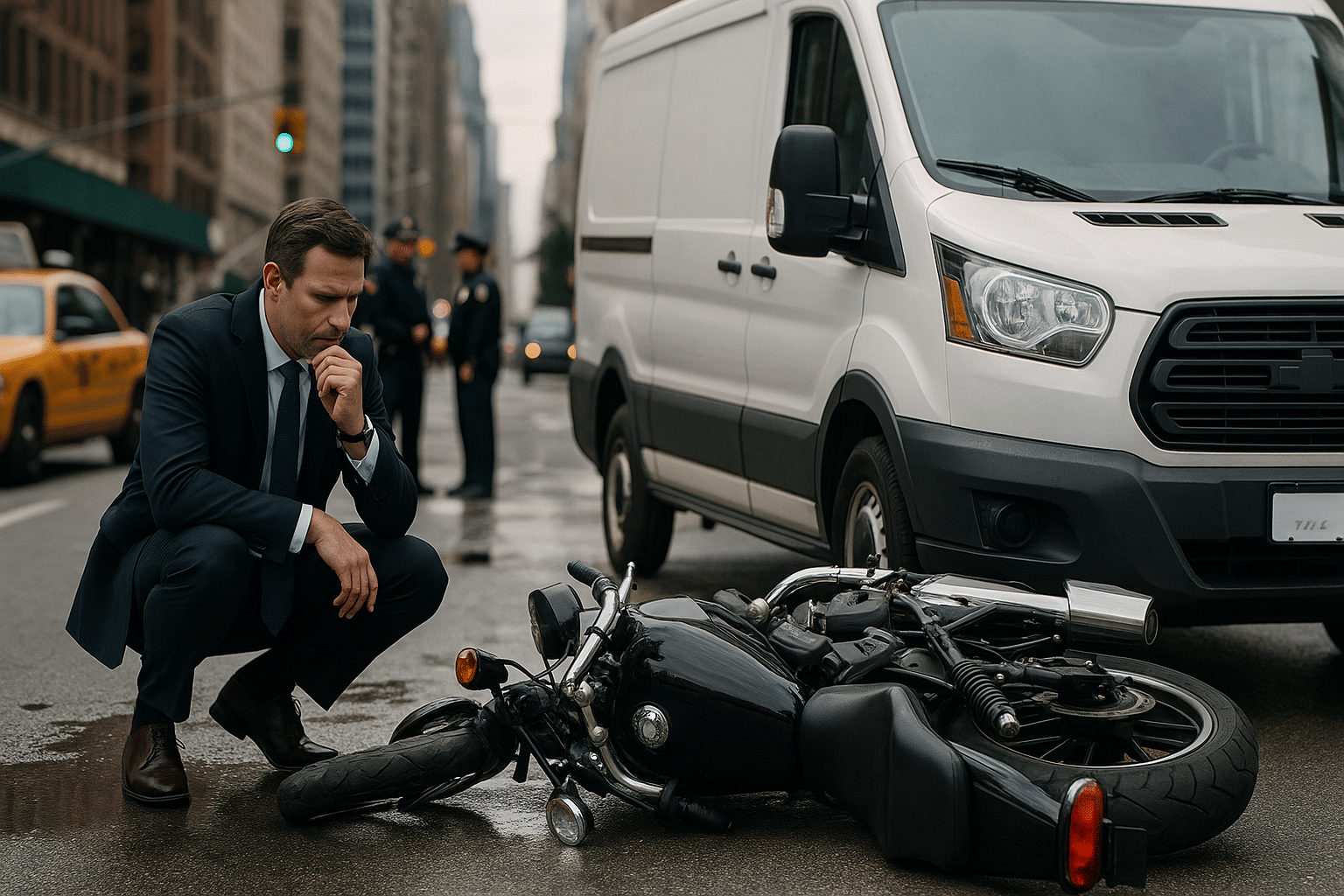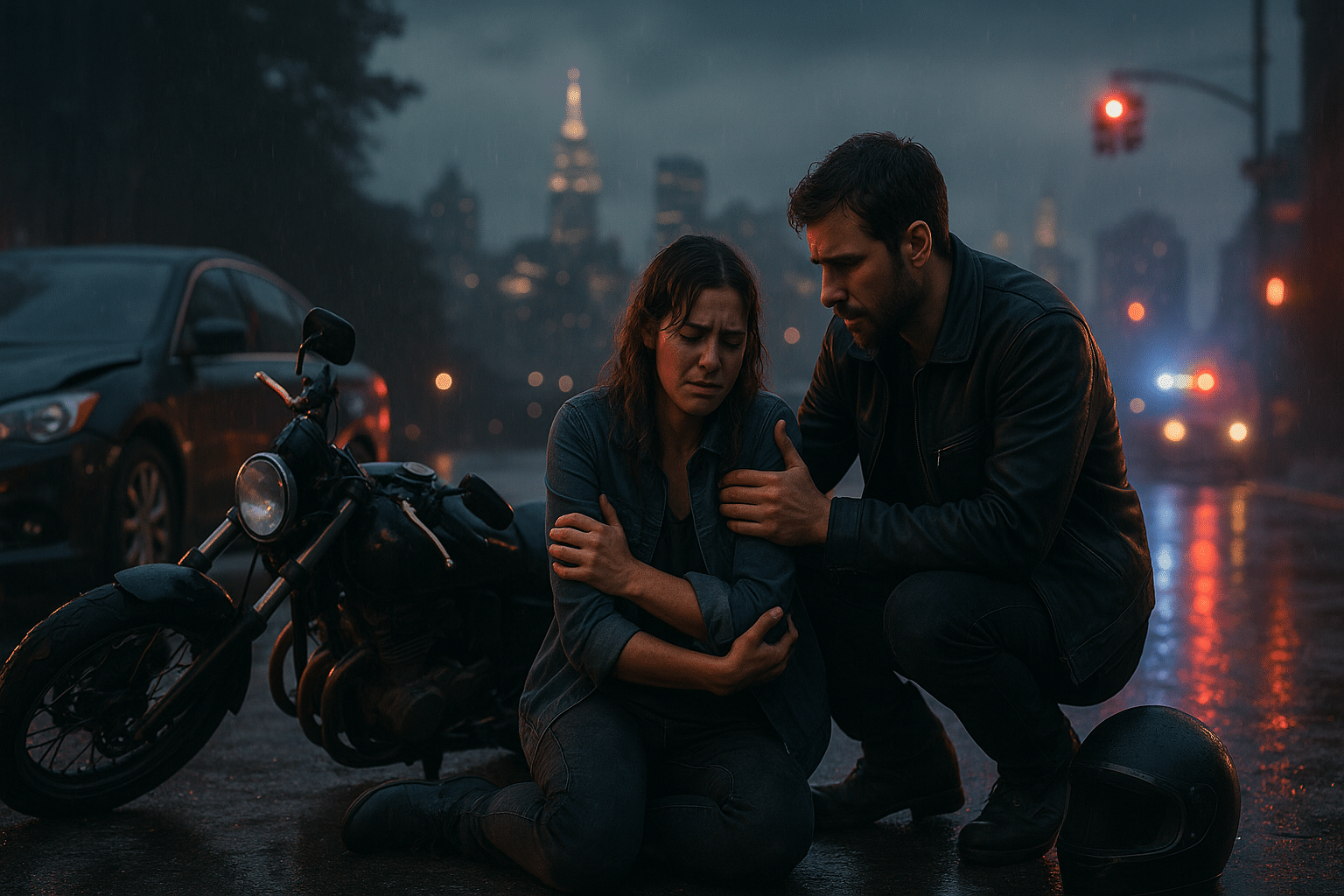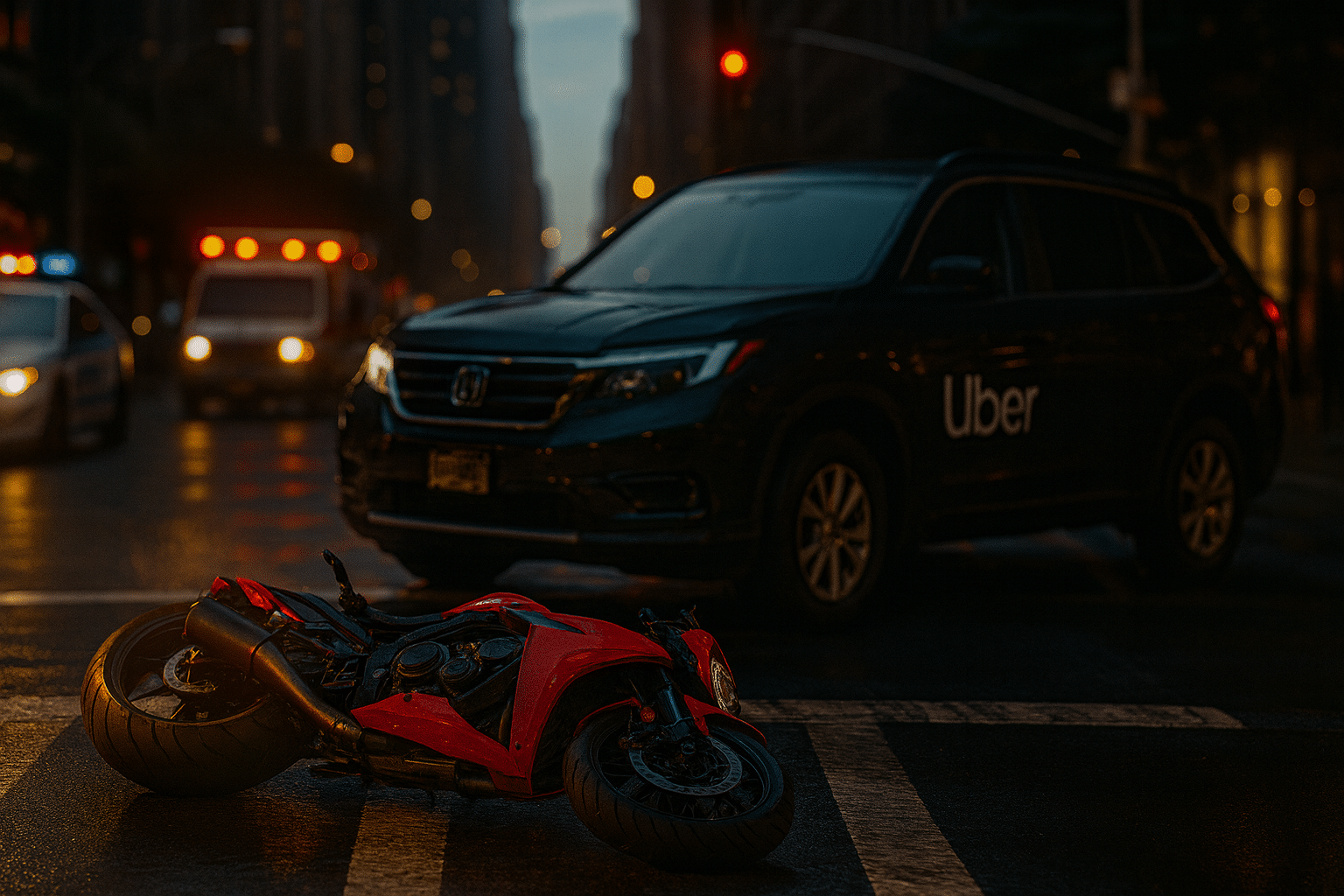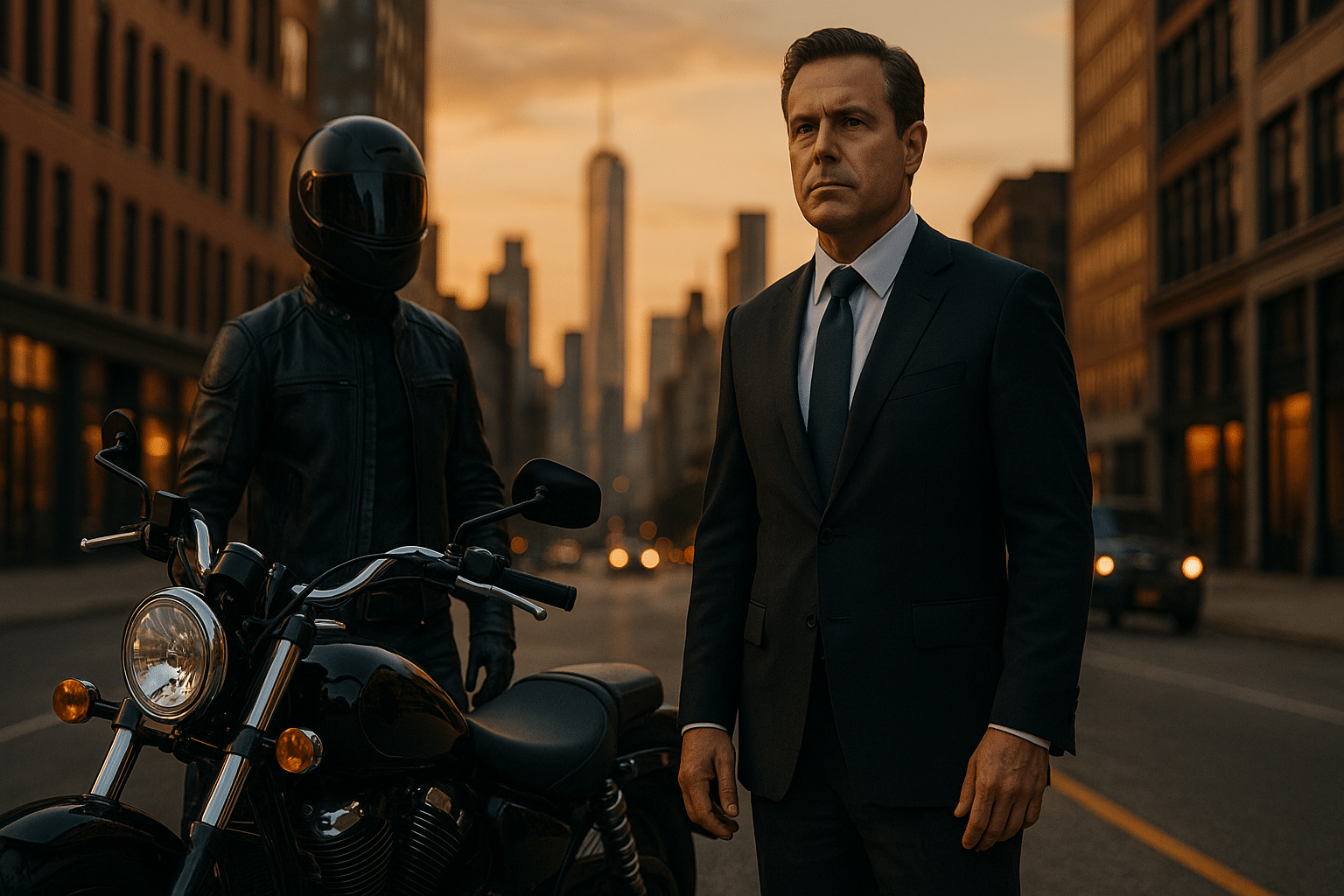Motorcycle crashes are among the most devastating accidents on New York streets. Even a momentary lapse by another driver can leave a rider facing life-changing injuries. One of the most serious — and often misunderstood — outcomes is a traumatic brain injury (TBI).
Many riders assume that wearing a helmet guarantees protection against head trauma. While helmets significantly reduce the risk of death, they cannot always prevent internal brain injuries. Understanding how TBIs occur, recognizing their early signs, and acting quickly are critical not only for recovery but also for securing the compensation you deserve.
Table of Contents
We return our clients’ phone calls. We are available 24/7, 365 days a year. I give out my personal cell phone number to all my clients, and I tell them they can feel free to contact me at any time. That’s what makes us different.
—Mitchell Proner
What Is a Traumatic Brain Injury (TBI)?
A traumatic brain injury occurs when a sudden impact or violent movement causes the brain to move inside the skull, leading to bruising, bleeding, or torn tissue. In motorcycle crashes, TBIs often result from direct head impacts or abrupt whiplash when the body stops suddenly, but the brain continues moving.
Even if a rider’s helmet remains intact, the force of a collision can cause the brain to strike the skull’s interior — leading to what doctors call a “closed-head injury.” These injuries can range from mild concussions to severe brain damage that affects memory, motor skills, and personality.
How TBIs Can Happen — Even With a Helmet
Helmets save lives, but they do not make riders invincible. During a crash, rotational forces can twist the brain inside the skull, tearing delicate neural fibers. This type of injury may occur even without visible trauma.
For example, when a motorcycle is hit from the side or rear, the rider’s head can snap violently, causing the brain to rotate and stretch. These internal injuries often go undetected immediately after the crash, especially if the victim feels “fine.” Days later, symptoms may worsen as swelling and bleeding increase pressure inside the skull.
That’s why medical experts insist: always seek emergency evaluation after a motorcycle accident, even if you never lost consciousness.
With 30 years of experience winning top settlements, we know how to deal with insurance companies and the legal system. You’re in the best hands with us.
—Mitchell Proner
Early Symptoms Riders Should Never Ignore
After a motorcycle crash, certain symptoms may appear subtle — but they could indicate a serious TBI. Riders should seek immediate medical care if they experience:
- Persistent or worsening headache
- Dizziness or loss of balance
- Confusion or memory problems
- Nausea or vomiting
- Sensitivity to light or noise
- Difficulty concentrating or speaking
- Sudden mood changes or irritability
Ignoring these signs can be dangerous. Without timely treatment, a mild concussion can progress to a severe brain injury, resulting in long-term cognitive impairment.
The Long-Term Consequences of a TBI
A traumatic brain injury can affect every part of a person’s life. Victims may struggle with chronic pain, depression, personality changes, or the inability to return to work. In severe cases, TBIs lead to permanent disability and require lifelong rehabilitation or in-home care.
Medical bills, therapy, and lost income can quickly become overwhelming. That’s why victims need not only medical support but also experienced legal representation to recover full financial compensation.
An attorney who understands both the medical and legal aspects of brain injuries can pursue damages for medical costs, lost earnings, pain and suffering, and future care needs.
Why Legal Help Matters After a Motorcycle Head Injury
Insurance companies often downplay TBIs, arguing that symptoms are temporary or unrelated to the crash. Without the right lawyer, victims risk accepting low settlements that don’t cover their true losses.
At Proner & Proner, our motorcycle accident lawyers in NYC have decades of experience handling complex brain injury cases. We work with neurologists and accident reconstruction experts to prove the full extent of your injury and its impact on your life.
Whether your accident happened in Queens, Brooklyn, the Bronx, or anywhere in New York City, our team will fight for maximum compensation. We know the tactics insurers use — and we know how to beat them.
Your Next Step Toward Justice
If you or a loved one suffered a traumatic brain injury in a motorcycle accident, don’t wait to act. Early medical diagnosis can protect your health — and early legal action can protect your future.
Call Proner & Proner today at 1-800-321-1234 for a free consultation. There are no fees unless we win your case.
Your recovery matters. Let our New York motorcycle accident attorneys help you get the justice and compensation you deserve.
FAQ
Yes, although it may affect the compensation amount. Speak with a lawyer to evaluate your specific case.
New York follows a “comparative negligence” rule, meaning you can still receive compensation even if you were partly responsible.
In New York, you generally have up to 3 years to file a personal injury claim. The sooner you act, the better your chances of success.

